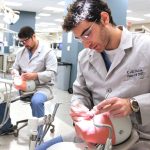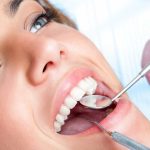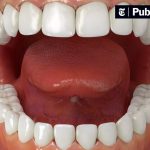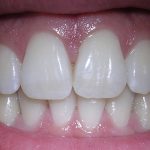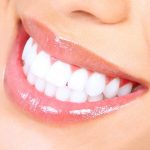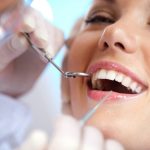When Can You Chew Gum After Wisdom Teeth Removal: A Comprehensive Guide
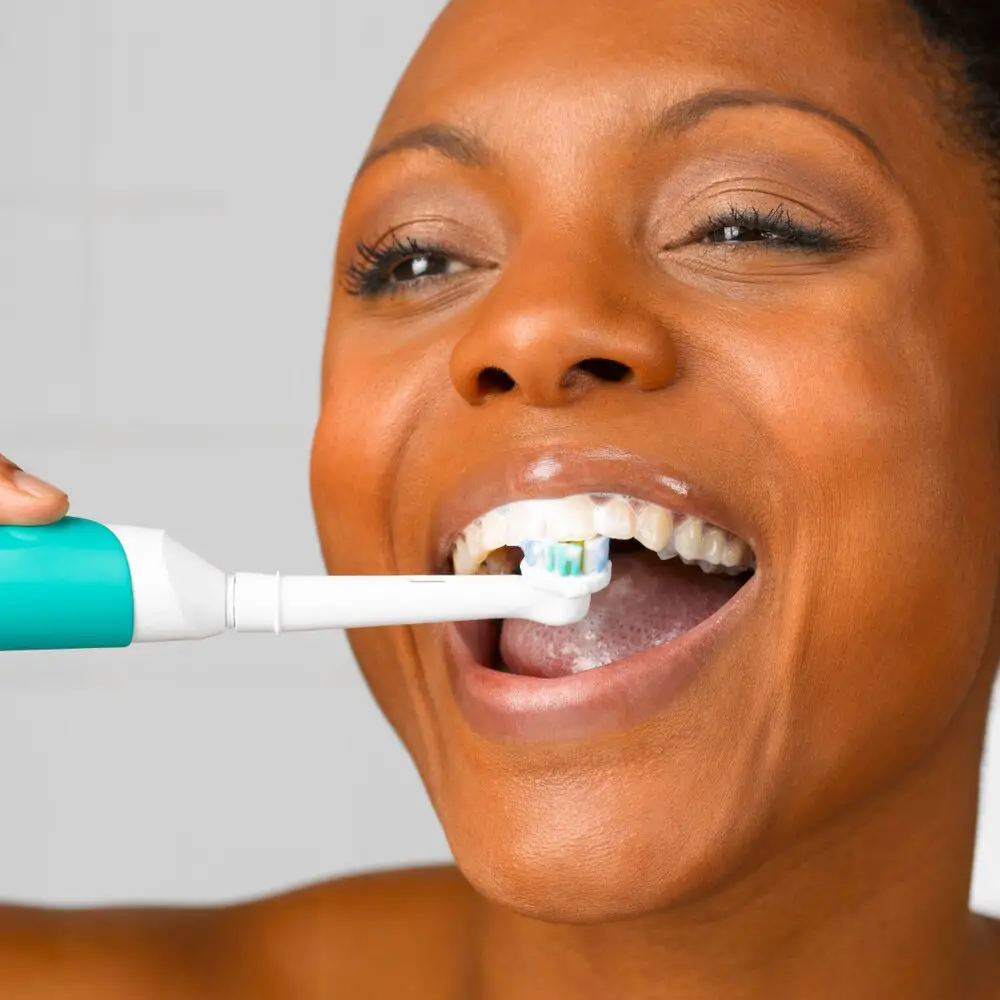
Wisdom teeth removal is a common oral surgery that many people undergo in their lifetime. It’s a relatively simple procedure that involves the removal of the third molars, located at the back of the mouth. Although the surgery itself is straightforward, the recovery process can be uncomfortable and challenging. One of the most common questions people have after wisdom teeth removal is when they can chew gum again. While it may seem like a simple question, the answer is not so straightforward, as there are several factors to consider. In this comprehensive guide, we will explore when you can start chewing gum again after wisdom teeth removal and what you should know about the recovery process. After wisdom teeth removal, it’s important to follow your dentist or oral surgeon’s instructions carefully to ensure a smooth recovery. One of the most critical steps in the recovery process is avoiding any activities that could irritate the surgical site or disrupt the healing process. Chewing gum is one of those activities that should be avoided in the first few days after surgery. However, the length of time you should wait to start chewing gum again can vary depending on several factors, such as the extent of the surgery, the type of gum you’re chewing, and your individual healing process. In the following sections, we’ll explore these factors in more detail and provide you with a comprehensive guide on when you can start chewing gum again after wisdom teeth removal.
Wisdom teeth removal is a common oral surgery procedure that involves extracting one or more of the third molars located at the back of the mouth. These teeth typically emerge during early adulthood and can cause a variety of dental problems, including overcrowding, impaction, infection, and decay. The procedure is typically performed under local or general anesthesia and involves making an incision in the gums, removing any bone blocking the tooth, and then extracting the tooth itself. Recovery time varies depending on the individual, but typically involves some level of pain, swelling, and bleeding for a few days after the procedure. Patients are usually advised to avoid certain foods and activities during the recovery period to ensure proper healing.
Postoperative care is vital to ensure proper healing after any surgical procedure, including wisdom teeth removal. It involves a series of measures taken to manage pain, prevent infection, promote healing, and minimize complications. Following the postoperative care instructions given by your dentist or oral surgeon can help reduce the risk of bleeding, swelling, and infection. It is important to rest and avoid strenuous activities for the first few days after surgery and to maintain good oral hygiene by gently brushing and rinsing your mouth. Additionally, avoiding certain foods and drinks, such as gum, can help prevent damage to the surgical site and promote faster healing. By following the postoperative care instructions and regularly attending follow-up appointments, you can ensure a smooth and successful recovery after wisdom teeth removal.
Chewing gum is a popular pastime for many people, but those who have recently undergone wisdom teeth extraction may need to refrain from this activity for a period of time. The act of chewing gum can put pressure on the surgical site, causing pain and potentially damaging the healing process. Additionally, the sticky nature of gum can cause it to get stuck in the extraction site, leading to infection or other complications. It is important to follow your dentist’s instructions and wait until you have fully healed before resuming your gum-chewing habit. In the meantime, consider alternative ways to freshen your breath and keep your mouth clean, such as using a non-alcoholic mouthwash or chewing sugar-free mints.
The Healing Process
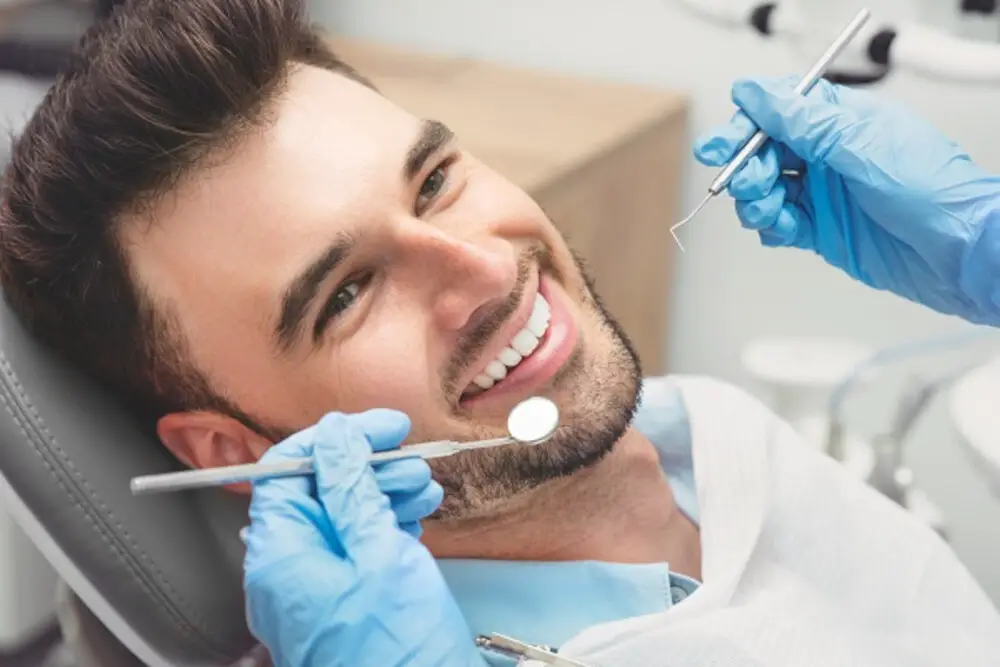
The healing process after wisdom teeth removal is a crucial phase that requires patience, care, and attention to detail. The first few days after the procedure are generally the most uncomfortable, as the body works to repair the damaged tissues and reduce inflammation. During this period, it is essential to follow the aftercare instructions provided by the dentist to ensure that the healing process is smooth and uneventful. These instructions may include taking pain medication, using ice packs to reduce swelling, and avoiding hard or crunchy foods that could irritate the surgical site. As the healing process progresses, the discomfort should gradually subside, and patients can begin to reintroduce soft foods into their diet. This often includes items such as soup, yogurt, and mashed potatoes, which are easy to chew and swallow. However, it is still important to avoid chewing near the surgical area and to maintain good oral hygiene habits to prevent infection. Patients may also need to attend follow-up appointments with their dentist to monitor the healing process and ensure that there are no complications. By following these guidelines and staying patient, most patients can make a full recovery from wisdom teeth removal within a few weeks.
The healing process after wisdom teeth removal is a multi-stage process that involves the formation of a blood clot, the growth of new tissue, and the restoration of the underlying bone. After the wisdom teeth are removed, the body begins to form a clot in the socket to protect the exposed bone and nerves. Over the next few days, new tissue begins to grow over the socket, forming a protective layer that helps prevent infection and promotes healing. As the tissue heals, the underlying bone begins to regenerate, restoring the strength and integrity of the jaw. While the healing process can take several weeks, most patients are able to resume normal activities within a few days of the procedure, including eating soft foods and even chewing gum, provided they follow their dentist’s instructions carefully.
Several factors can influence the healing time after wisdom teeth removal. One of the most significant factors is the patient’s age; younger people tend to heal faster than older individuals. The extent of the surgical procedure and the complexity of the extraction can also affect the healing process. Smoking and tobacco use can delay the healing process, as can poor oral hygiene. Additionally, certain medical conditions and medications can slow down the healing process, and a lack of proper nutrition or hydration can also hinder the body’s ability to heal. It’s important to follow post-operative instructions closely to ensure a smooth and speedy recovery.
Following postoperative instructions after wisdom teeth removal is crucial for an optimal recovery. Failure to follow these instructions may lead to complications such as dry socket, infection, prolonged pain, and delayed healing. The instructions may include restrictions on physical activities, diet, and medication. It is necessary to adhere to the guidelines provided by your dentist or oral surgeon to ensure that the surgical site heals properly and quickly. Failure to follow these instructions may result in a longer recovery period, which can be frustrating and time-consuming. Therefore, it is essential to take postoperative instructions seriously and follow them to the letter to reduce the risk of complications and promote a speedy recovery.
What Happens When You Chew Gum After Wisdom Teeth Removal
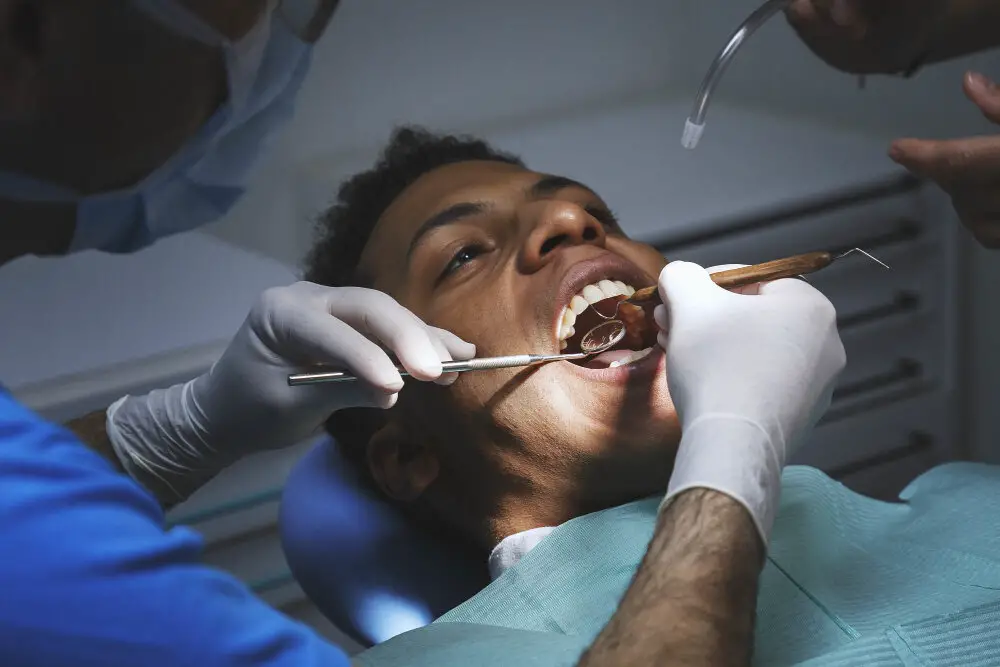
After wisdom teeth removal, it is essential to avoid activities that can hinder the healing process. One such activity is chewing gum. While it may seem harmless, chewing gum can cause irritation in the gums and disrupt the blood clot that forms in the socket. This clot is vital in promoting healing and preventing infection. If the clot is dislodged, it can lead to a painful condition called dry socket. Dry socket occurs when the underlying bone and nerves are exposed to air, food, and fluids, causing severe pain, bad breath, and discomfort. Therefore, it is crucial to avoid chewing gum for at least a week after wisdom teeth removal. Apart from the risk of dry socket, chewing gum can also put pressure on the jaw muscles, causing pain and discomfort. After wisdom teeth removal, the jaw may be sore and swollen, and chewing gum can exacerbate these symptoms. Additionally, some types of gum contain sugar, which can lead to bacteria growth in the mouth, increasing the risk of infection. Therefore, it is best to avoid gum altogether until the dentist or oral surgeon gives the go-ahead to resume normal activities. Following these precautions and being patient can ensure a smooth and quick recovery after wisdom teeth removal.
Chewing gum too soon after wisdom teeth removal can lead to potential risks and complications. The act of chewing can put pressure on the surgical site, causing bleeding or reopening of the wound. The physical motion of chewing can also dislodge the blood clot that forms in the socket, leading to a painful condition known as dry socket. Additionally, the sugar and artificial sweeteners found in gum can irritate the sensitive tissue in the mouth, delaying the healing process. It is important to follow the post-operative instructions provided by your dentist or oral surgeon, which typically recommend waiting at least a week before resuming normal activities such as chewing gum.
Chewing gum after wisdom teeth removal can have a significant impact on the healing process. While chewing gum can stimulate saliva production, which can help to wash away bacteria and food particles in the mouth, it can also cause the jaw muscles to work harder and create more tension in the mouth. This tension can lead to pain and discomfort, which can slow down the healing process. Additionally, chewing gum can dislodge the blood clot that forms in the socket after the wisdom teeth are removed, which can lead to a painful condition called dry socket. It is important to wait until your dentist or oral surgeon gives you the go-ahead to chew gum after wisdom teeth removal to ensure that your healing process is not compromised.
One of the potential risks associated with wisdom teeth removal is damage to the surgical site. This can happen if you chew gum too soon after the procedure, as the act of chewing can cause irritation and inflammation in the area. When the surgical site becomes inflamed, it can be difficult for the body to heal properly, which can lead to complications like infection or prolonged pain. Additionally, chewing gum can dislodge the blood clot that forms over the wound, which is essential for proper healing. It is important to follow your dentist’s instructions carefully and avoid chewing gum until you have fully healed to minimize the risk of damage to the surgical site.
When Can You Safely Chew Gum After Wisdom Teeth Removal?
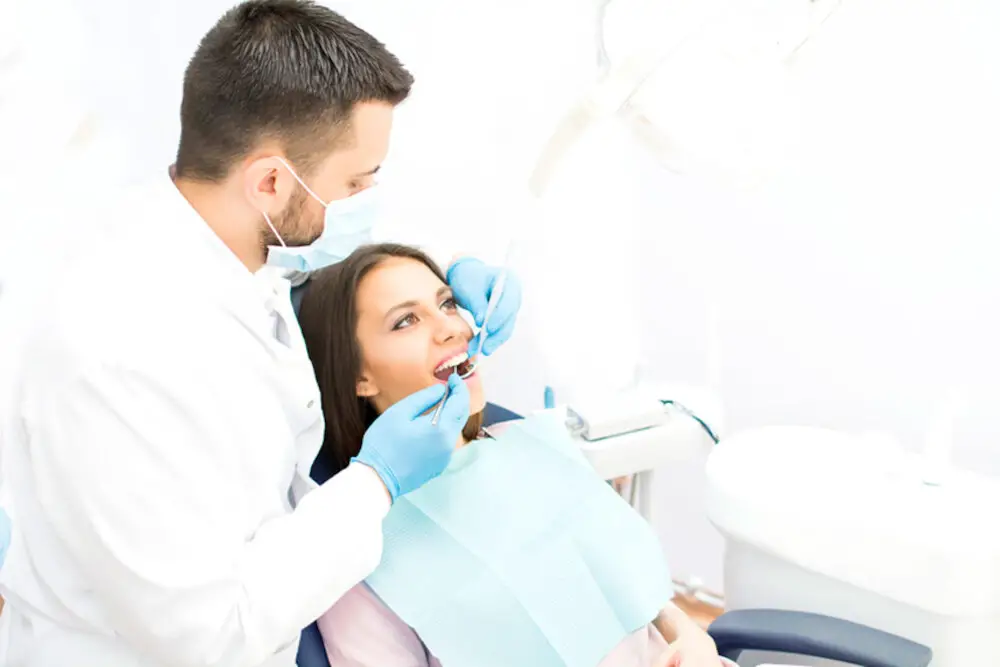
After getting wisdom teeth removed, it is important to follow the aftercare instructions carefully to avoid any complications. One of the most frequently asked questions is when it is safe to chew gum after the procedure. The answer to this question is not straightforward and depends on several factors. Generally, it is advisable to wait at least 7-10 days after the surgery before resuming gum-chewing. This waiting period allows the gums to heal and the blood clot to form properly. If you start chewing gum too early, it can dislodge the clot and cause a painful condition called dry socket. Dry socket can delay the healing process and increase the risk of infection. Therefore, it is best to be patient and wait until your dentist gives you the green light to resume gum-chewing. In addition to waiting for a few days, it is important to choose the right type of gum after wisdom teeth removal. Avoid gum that is hard to chew, sticky, or flavored. Instead, opt for sugar-free gum that is soft and easy to chew. Sugar-free gum stimulates saliva production, which can help keep your mouth moist and prevent dry socket. It can also freshen your breath and reduce the risk of oral infections. However, it is important to note that chewing gum should not be a substitute for good oral hygiene practices like brushing and flossing. Gum-chewing should be done in moderation and only after your dentist gives you the go-ahead.
The healing process after wisdom teeth removal typically takes about one to two weeks. The first 24 hours are crucial, as this is the time when bleeding and swelling are most common. Patients are advised to rest and limit physical activity during this time. After the first day, swelling should gradually subside, and patients can begin to introduce soft foods into their diet. By the third day, patients may be able to return to work or school, depending on their level of discomfort. By the end of the first week, most patients are able to resume their normal routine, although they should continue to avoid hard, crunchy foods and strenuous activity. By the end of the second week, the gum tissue should be fully healed, and patients can return to their regular diet and activities. It is important to follow all post-operative instructions provided by your oral surgeon to ensure a smooth and successful healing process.
After wisdom teeth removal, chewing gum can be a risky activity as it can dislodge the blood clot or cause irritation to the surgical site. It is recommended to wait at least 24 to 48 hours before chewing gum, allowing for the blood clot to form and the surgical site to start healing. However, the length of time may vary depending on the individual and the extent of the surgery. It is important to follow the post-operative instructions provided by the dentist or oral surgeon to ensure proper healing and avoid complications. Once the surgical site has fully healed and there is no discomfort or pain, it is safe to begin chewing gum again.
There are several factors to consider when determining when to start chewing gum after wisdom teeth removal. Firstly, it is important to wait until the effects of the anesthesia have worn off to avoid accidentally biting or injuring the inside of the mouth. Additionally, it is recommended to wait until any bleeding has stopped and the gum tissue has had time to heal. This typically takes around 24 to 48 hours. It is also important to avoid chewing gum if you experience any pain or discomfort as this can further irritate the area. Finally, it is important to choose a soft and sugar-free gum to avoid damaging the teeth or causing any further complications. By taking these factors into consideration, individuals can safely and effectively incorporate gum chewing back into their daily routine after wisdom teeth removal.
Tips for Chewing Gum After Wisdom Teeth Removal

After having your wisdom teeth removed, it is essential to follow specific guidelines to ensure a speedy and successful recovery. One of the most common questions that arise after the procedure is, \When can I chew gum again?\ While chewing gum may seem like a harmless activity, it can actually impede the healing process and cause discomfort. Therefore, it is crucial to wait until your dentist gives you the green light before resuming this activity. Typically, it is recommended to wait at least one week before chewing gum after wisdom teeth removal. This is because the suction created when chewing gum can dislodge the blood clot that has formed in the socket, leading to a painful condition called dry socket. Additionally, the act of chewing can put pressure on the surgical area, causing further irritation and discomfort. So, it is better to be patient and allow your body to heal before indulging in your favorite gum. When your dentist approves the resumption of gum chewing, it is essential to follow a few tips to avoid any complications. Firstly, it is essential to choose sugar-free gum as sugar can lead to tooth decay and further complications. Secondly, it is recommended to start with small pieces of gum and gradually increase the size as your mouth adapts to the activity. Thirdly, it is crucial to avoid chewing gum for extended periods as this can cause jaw soreness and fatigue. Lastly, it is essential to spit out the gum after approximately 15-20 minutes of chewing and avoid swallowing it. By following these tips, you can enjoy the benefits of gum chewing while minimizing any negative side effects after wisdom teeth removal.
After undergoing wisdom teeth removal surgery, it’s crucial to take proper care of your mouth to avoid complications. Chewing gum may seem harmless, but it can cause damage to the surgical site if done incorrectly. To safely chew gum after surgery, wait at least 24 hours before attempting to do so. When you are ready to chew gum, make sure it is sugar-free to prevent any infection from developing. Begin by chewing on the opposite side of the surgical site, and avoid chewing too vigorously. It’s recommended to discard the gum after 10-15 minutes and rinse your mouth with saltwater to ensure the surgical site is clean. Following these guidelines will help promote healing and prevent any unnecessary discomfort.
When it comes to choosing the right type of gum after getting your wisdom teeth removed, there are several factors to consider. Firstly, it is recommended to opt for sugar-free gum to prevent the risk of tooth decay and promote better oral health. Additionally, choosing a gum that contains xylitol can help to stimulate saliva production and aid in the healing process. It is also important to choose a softer gum that is less likely to stick to your teeth and cause discomfort or damage to the extraction site. Finally, it is best to consult with your dentist or oral surgeon to determine the best type of gum for your individual needs and to ensure proper healing after the extraction procedure.
Maintaining good oral hygiene during the healing process after wisdom teeth removal is crucial to prevent infections and promote faster healing. It is recommended to avoid brushing or rinsing the surgical area for the first 24 hours to avoid dislodging the blood clot. Afterward, gentle brushing with a soft-bristled brush should be done twice a day, along with rinsing with saltwater or an antibacterial mouthwash. Avoid using tobacco or drinking alcohol, as these can delay healing and increase the risk of complications. Additionally, it is essential to refrain from chewing gum or eating hard, crunchy, or sticky foods for at least a week after surgery to prevent damaging the surgical site. By following these tips and maintaining good oral hygiene, patients can ensure a smooth recovery and prevent any complications.
Postoperative care is an essential aspect of any surgical procedure, including wisdom teeth removal. This phase begins immediately after the surgery and can last for weeks, depending on the nature of the procedure. The primary goal of postoperative care is to ensure that the patient recovers fully and quickly. This involves monitoring the patient for potential complications and providing appropriate treatment if needed. It also involves educating the patient about self-care measures they must take to promote healing and prevent infections. Following the postoperative care instructions from your dentist or oral surgeon is critical for a successful recovery and can help you avoid unnecessary pain and complications. Therefore, it is important to take postoperative care seriously and to follow all instructions provided by your healthcare provider.
In conclusion, chewing gum after wisdom teeth removal can be a tricky subject. While some dentists may recommend it for its potential benefits, such as increased saliva production and jaw exercise, it is important to proceed with caution. Chewing gum too soon after surgery can disrupt the healing process and cause complications like dry socket. It is best to wait until you have fully recovered and consult with your dentist before incorporating chewing gum into your post-operative routine. In the meantime, focus on following your aftercare instructions and taking care of yourself to ensure a smooth and successful recovery.
If you’re trying to figure out when you can chew gum after wisdom teeth removal, it’s always best to consult with a dental professional for personalized advice. While there are some general guidelines that can help you determine when it’s safe to start chewing gum again, every patient’s situation is unique. Factors like the number of wisdom teeth removed, the severity of the extraction, and your overall dental health can all play a role in how quickly you can resume your normal activities. By seeking advice from a dental expert, you can get the personalized guidance you need to ensure a smooth and successful recovery after wisdom teeth removal. So don’t be afraid to reach out to your dentist or oral surgeon for support and advice as you heal.
Conclusion
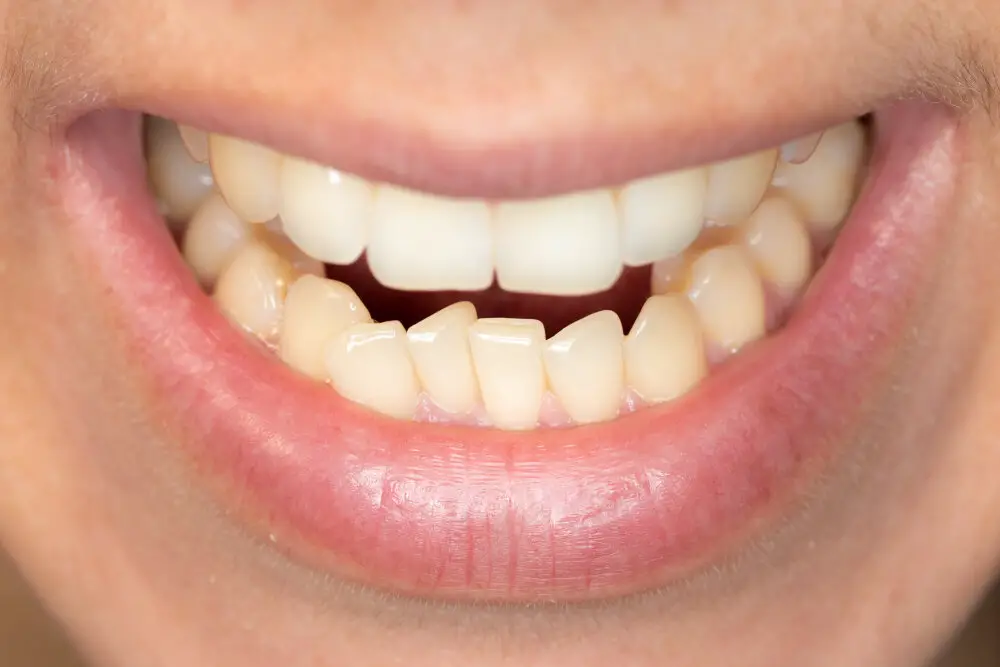
In conclusion, the process of recovering from wisdom teeth removal can be a daunting experience, but with proper care and patience, it can be made much easier. One crucial aspect of this recovery is knowing when it is safe to start chewing gum again. As discussed in this comprehensive guide, it is essential to wait at least 24-48 hours after the procedure before attempting to chew gum. Even then, it is important to start with softer types of gum and exercise caution to avoid dislodging any blood clots or damaging the surgical site. By following these guidelines and consulting with your dentist or oral surgeon, you can ensure a smooth and successful recovery after wisdom teeth removal.

